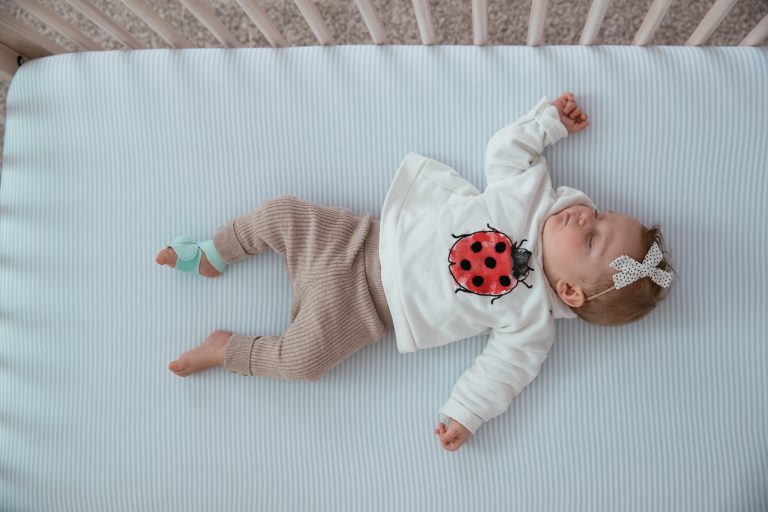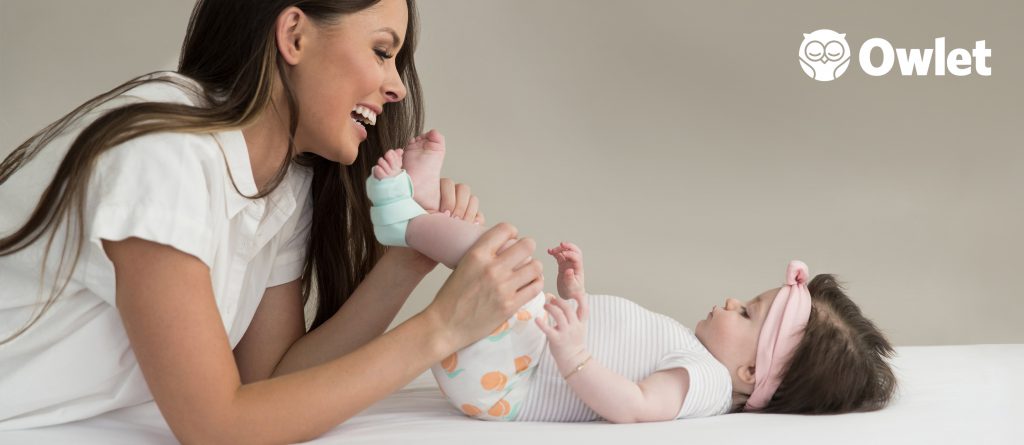What You Need to Know About Your Baby’s Sleep Cycles

What You Need to Know About Your Baby’s Sleep Cycles
During the early months and years of your baby’s life, sleep is crucial for growth, immunity and brain development. Unlike adults who generally need between 7-9 hours of sleep to perform at their best, your baby needs much more. In fact, newborns need between 16-17 hours a day, which drops to around 14 hours at around 3 months old. But that’s not the only way their sleep differs from ours. Your baby’s sleep cycles are very different too, and when you understand how they work, you’ll get why they may wake several times throughout the night. So, although it’s exhausting to have to get up in the middle of the night to settle your baby, take comfort in the fact that it is totally normal and to be expected.
How a Baby’s Sleep Cycle Differs from an Adult
Whilst the average adult sleep cycle lasts about 90-100 minutes and involves several sleep stages such as deep sleep and REM (or active sleep), a newborn’s sleep cycle is much simpler. The average sleep cycle for a baby is just 30-60 minutes for the first nine months, with only 2 stages – quiet and active sleep. When a baby first falls asleep, they go into active sleep, which is very similar to REM sleep for adults. However, unlike adults who only spend 20% of the night in this stage, babies spend 50% in active sleep – and it is during this stage that they are most likely to wake up. This explains why they are often such light sleepers, right?
About halfway through the sleep cycle babies fall into quiet sleep, which is characterised by slower, rhythmic breathing, less movement and none of the eyelid fluttering that we may observe during active sleep. After the period of quiet sleep, babies either wake up or begin another sleep cycle and return to active sleep.
Around the age of six months, the length of a babies sleep cycle begins to lengthen and the time spent during active sleep shortens. You may start to find that your baby wakes less often during the night, or begins to self-settle between cycles. However, it can take up to 1 year for a baby to sleep through the night like we do. But, there are certainly things we can do to help them form good sleep habits, so we are all waking less in the night.
Tracking Your Baby’s Sleep Cycles
Because babies do spend so much time in active sleep, they can be startled or woken easily. By using a baby monitor that allows you to keep an eye on them, or monitor them without disturbing their sleep can be a great investment in your own peace of mind. The advent of smart devices also means that there are baby monitors on the market that can track everything from your baby’s heart rate, oxygen levels and even their sleep cycles.
Related article: Is the Owlet Smart Sock a Must Have Baby Item?
The Owlet Smart Sock is one such baby monitor, and one of our absolute favourites. It allows you to track your baby’s heart rate and oxygen levels and sends real time insights to your phone, so you can monitor your baby no matter where you are in your home. It also includes a base station which glows green to reassure you that your baby is okay, but it will notify you if heart rate and oxygen levels leave preset zones.
The Owlet monitor also uses your babies heart rate and movement to provide insight into hours slept, awake times and a breakdown of light and deep sleep. You can then use this data to create routines and develop healthy sleep habits for your baby.
Isn’t technology amazing?











